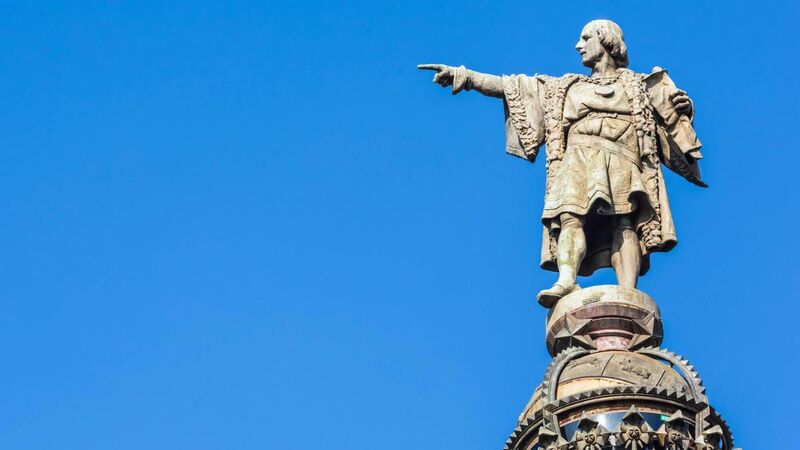Gareth O'Callaghan: What Columbus and Trump have in common isn’t leadership — it’s greed

The Columbus statue in Barcelona: His brutality towards the Amerindians, as they were known, during his journeys along the coastline of Central and South America became his true legacy.
“In 1492, Columbus sailed the ocean blue.” I remember the poem from my school days, when we were taught the Italian explorer, Christopher Columbus, departed Palos in Spain with three ships — the Nina, Pinta and Santa Maria — and sailed across the Atlantic to discover the vast and unpopulated 'New World'.
In the simplistic setting of primary school, the man credited with being the first to step onto American soil was a hero, from a time when most people believed the world was flat and nothing existed beyond their own coastlines.















